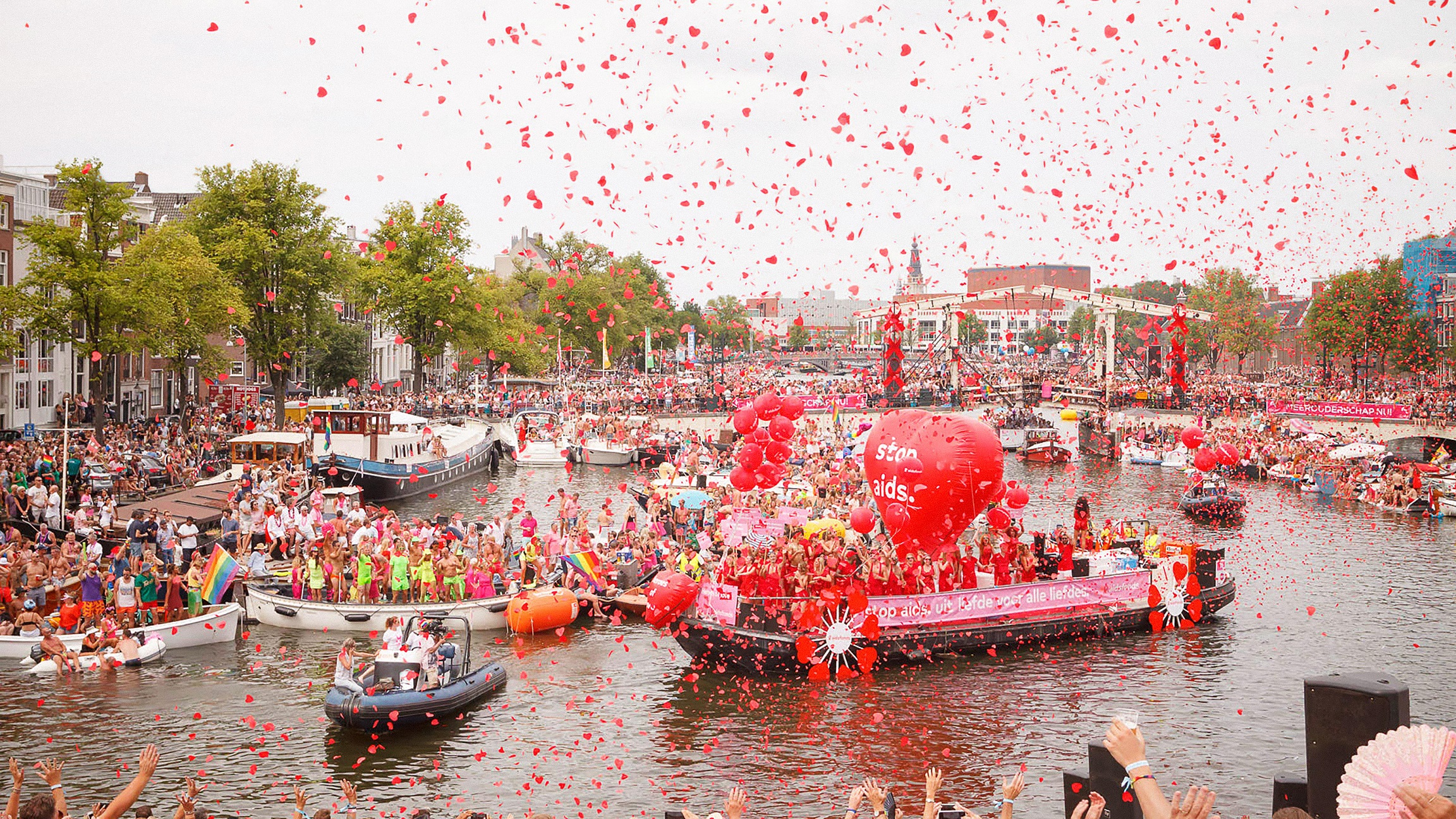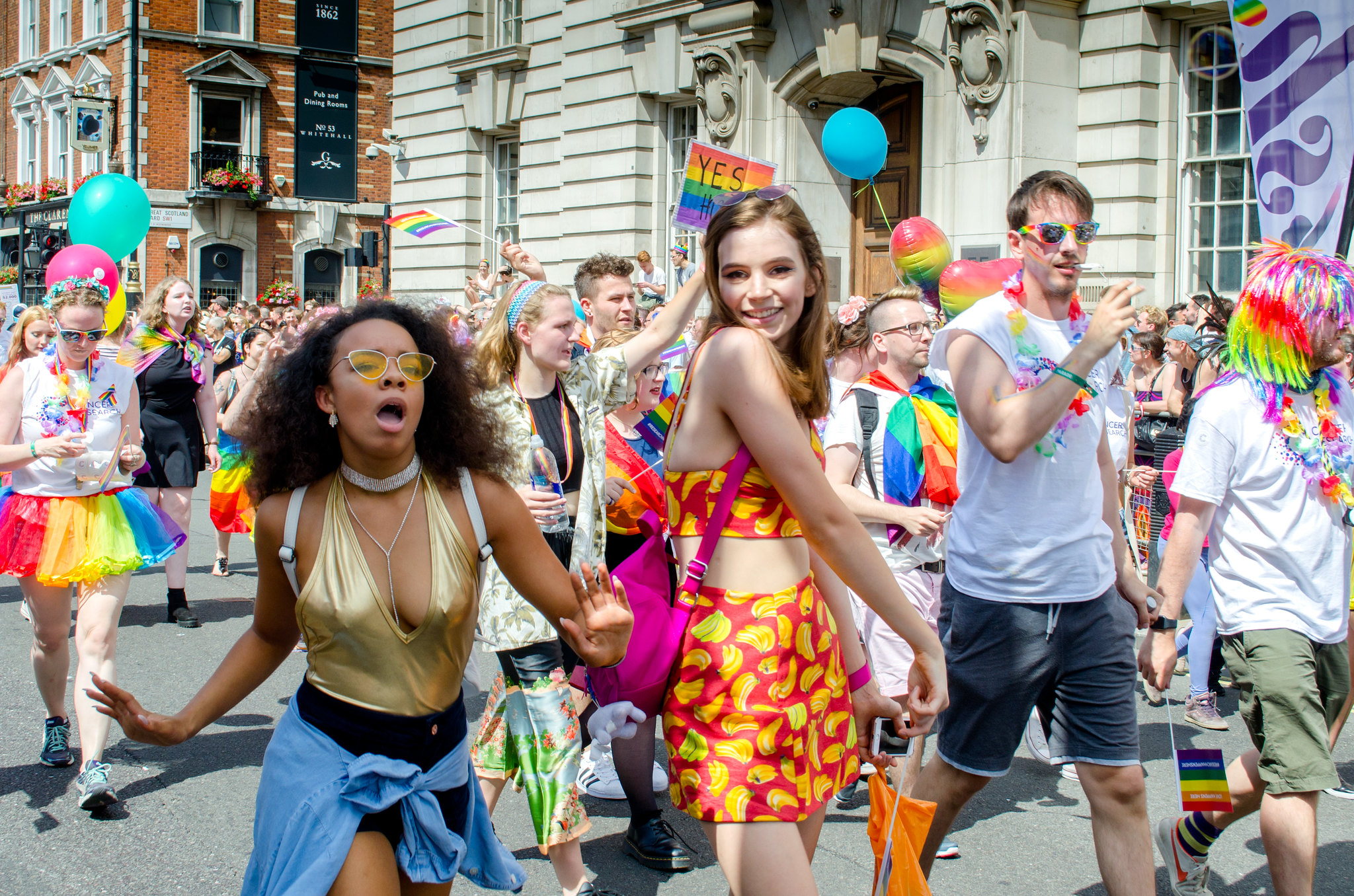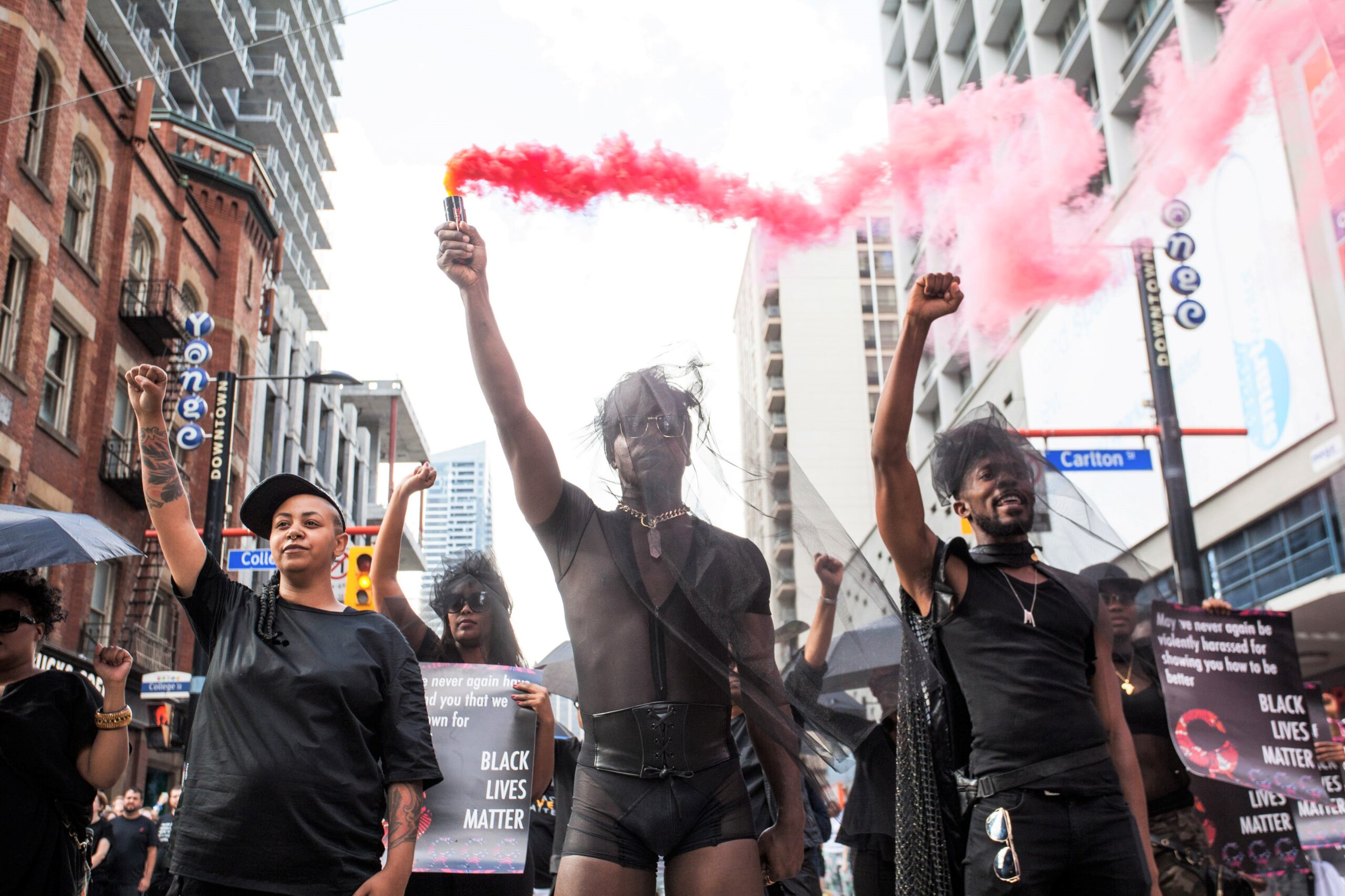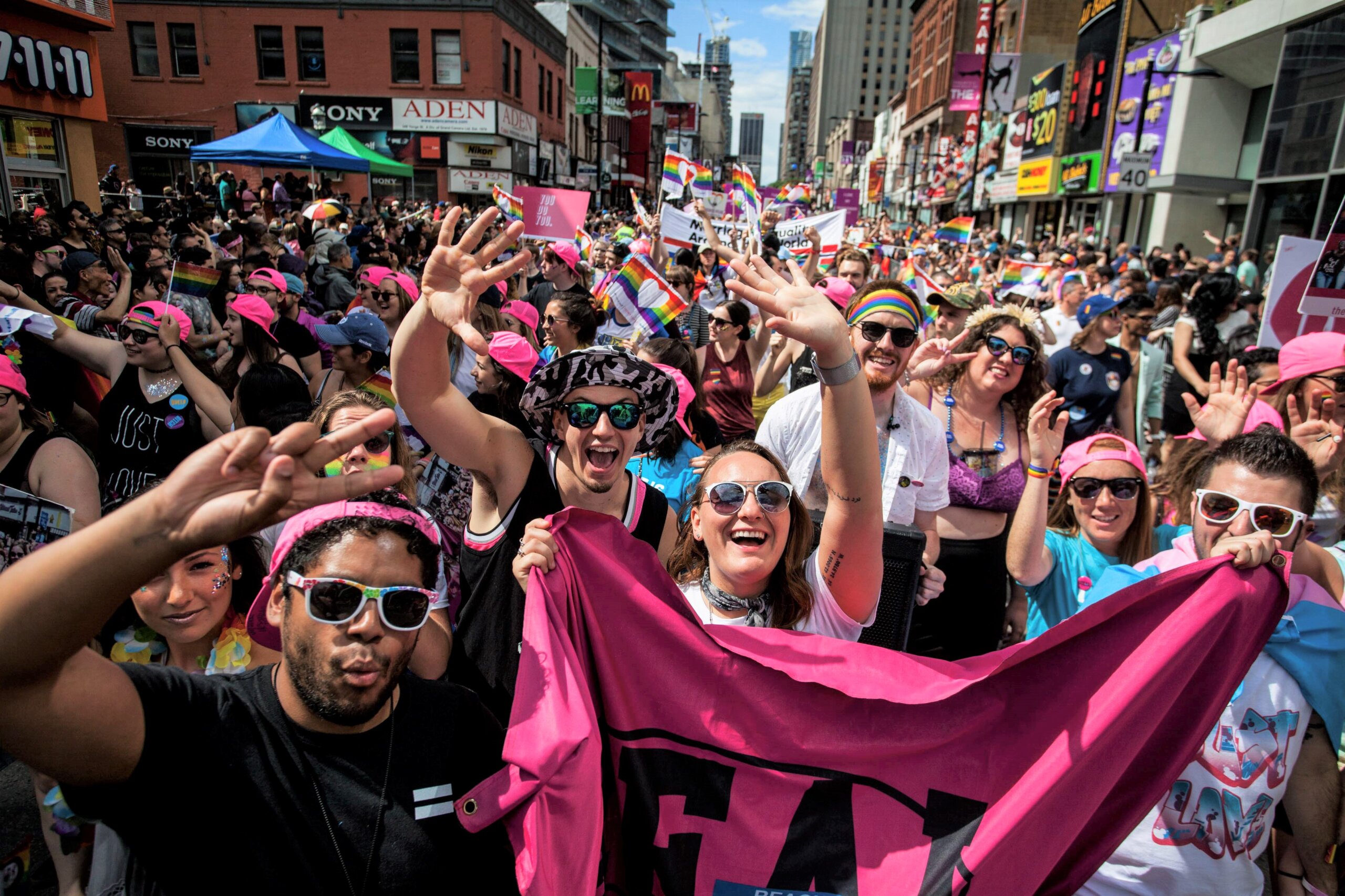Coming off two years of COVID-19 restrictions, which forced the cancellation or shrinking of most Pride festivities around the world in 2020 and 2021, Pride organizers from North America, Europe and beyond are hopeful, despite some lingering restrictions, that live Pride celebrations are back on track.
And many organizers have used the break to rethink their celebrations to make them more inclusive and thoughtful.
Amsterdam’s Pride parade, for example, will be back on August 6 after a two-year hiatus, making this year the 25th anniversary of the famous parade on the canals, which sees 80 elaborately festooned boats wind their way through the city’s historic centre. Pride Amsterdam, launched in 1996 as a way to generate tourism dollars during the city’s slow summer period, has grown into nine days of something more than just glitzy fun.
“People used to only care that the boats looked nice,” says Lucien Spee de Castillo Ruiz, executive director of Pride Amsterdam. “Now people want to get educated, to grow their knowledge of our wider community. They want to get more out of Pride than just a party.”

Credit: Mike Breeuwer/Pride Amsterdam
In an effort to welcome those who identify as trans and non-binary, this year’s festival theme, “My Gender, My Pride,” will focus less on sexuality and more on gender diversity. Spee de Castillo Ruiz hopes to promote discussion among what he refers to as all of the “different letters of the LGBTQ+ community” by broadcasting community talk shows on Facebook, YouTube and on the online streaming channel Pride TV. When last year’s events were forced online by the pandemic, the Amsterdam-based Pride TV talk shows drew an audience of 1.8 million viewers from the Netherlands, Belgium and Luxembourg. The organization plans to build on that thirst to know more about the Pride movement.
“I feel like I have become a TV producer, but these are important discussions to continue having,” says Spee de Castillo Ruiz. “Anyone can party on the street, but learning and understanding each other makes our community stronger.”
Billed as the largest Pride in the Middle East, Tel Aviv Pride was cancelled in 2020, and then went locals-only in 2021. The city’s reputation for sun, sand and gay nightlife has always been a big part of its appeal to LGBTQ+ visitors, but this year Pride organizers plan to lure travellers to the city with an improved and more inclusive version of their traditional slate of events. Instead of the usual weekend, they are hosting flagship events from May 20 to June 10, that now include a family picnic, a health conference, a seniors’ party and a women-focused rave (where all are welcome). There are also plans to make every event accessible to people with disabilities for the first time ever, including the parade itself.
The city has high hopes of surpassing their usual pre-pandemic attendance numbers of 50,000. “We are more on than ever,” says Kenneth Gotlib, head of international press for Tel Aviv Global and Tourism, the promotional arm for Tel Aviv. “We like to refer to it as revenge Pride—bigger and better than ever before.”

Credit: Tel Aviv Pride
For Pride in London (England, that is), organizers have also leaned into LGBTQ+ history. They are marking 50 years since the first organized gay rights protest in the United Kingdom with a march along that same 1972 route through the city’s core. About 40,000 marchers, including representatives from community groups including Trans in the City and Black Lives Matter, will wind their way from Trafalgar Square through the Soho gaybourhood to Speakers’ Corner in Hyde Park. The march, set for July 2, will culminate with an address from the city’s mayor Sadiq Khan and speeches from community leaders, all aimed at reminding attendees of Pride’s origins as a protest movement.
Pride in London executive director Christopher Joell-Deshields, the first Black person to lead the organization, says they’ve worked hard to ensure the wider LGBTQ+ community benefits in a tangible way from this year’s celebrations. There was a turnover in the leadership of the organization last year amid allegations of racism and bullying and they’re wanting to make amends.
“All monies raised, through commercial partnerships or events, including our kickoff Proud and Loud concert at Royal Albert Hall on June 4, are being donated to our recently created Unity Fund,” says Haven Thorn, head of PR for Pride in London. “The fund has already given out more than £100,000 [about CA$161,000, US$125,000] in the form of grants to a variety of community groups.”

Credit: Lee Morgan/Pride in London
Yet, despite the best-laid plans, COVID-19 remains a caveat for international travellers. Despite the publication of calendars with fun and educational events, many organizers emphasize that plans could change depending on how the pandemic continues to play out. Some countries aren’t taking any chances at all. Pride celebrations in Thailand, for example, are cancelled for 2022, as the country experienced very high levels of COVID-19 infection in the spring. Tokyo Rainbow Pride put strict limits on attendance and required advanced registration, which closed weeks before its April parade.
Pride Toronto, scheduled from June 1 to June 26, is back to its in-person format, but has factored health and safety into its plans, adding hand-sanitizing stations, increasing the number of washrooms available (and subjecting them to more rigorous cleaning than in the past) and expanding the event’s footprint in the hopes it will thin out the crowds and give people more room to breathe. There will be a number of events in Nathan Phillips Square, at City Hall, which is about a 22-minute walk from Toronto’s gay village, where most of the action unfolds. Yonge-Dundas Square, about 15 minutes’ walk from the village and five minutes from Nathan Phillips Square, will again be a key venue.
“We recognize and acknowledge that some folks are still not comfortable being in crowds,” says Sherwin Modeste, executive director of Pride Toronto. “We will be live-streaming key segments of different stages during the parade weekend so that people who prefer to stay home can still be included in the festivities.”

Credit: Xtra
San Francisco Pride’s two-day celebration and parade, taking place June 25 and 26, also reflects a cautious approach. “As we prepare for our return to a ‘traditional’ San Francisco Pride, we are examining every element of Pride Weekend to ensure that 2022’s experience is our best yet,” states the organization’s website. “The safety and well-being of our communities have guided our actions since day one. We are focused on making #SFPride2022 the safest and most welcoming event in our history.”
Taiwan’s LGBT Pride, which typically attracts thousands of people from neighbouring countries like China, Japan, South Korea, the Philippines and Thailand, is planning four days of celebration from October 27 to 30. Although travel into Taiwan is, at press time, straightforward for vaccinated travellers, it would be wise to remember that throughout the pandemic, the island has not been shy about enacting strict health measures. If the COVID-19 virus mutates another new variant, Taiwan’s health and safety restrictions may change accordingly. That said, despite rising infections this spring, in April Taiwan hosted the Asian Pride Games, the region’s only queer sports event, with about 2,500 Taiwanese and 250 mostly Taiwan-based foreign athletes competing.
“We are still having to check the changing requirements on behalf of our clients,” says Robert Sharp, the owner of Out Adventures, a Canadian tour and adventure company that caters to LGBTQ2S+ travellers. He advises that the pandemic considerations are still very much at play when planning travel, and that there are many countries, including popular European destinations like France and Italy, that continue to require travellers to produce proof of vaccination or negative test results prior to boarding their flight.
“Anyone travelling internationally should know that we still see COVID-19 rules and regulations changing as the pandemic rolls on,” Sharp says. Those booking their own travel should make sure to keep abreast of potential changes to travel requirements by checking their air carrier’s website.
“It is a beautiful way for our siblings from around the world to come together in a city that is ready to show its diversity.”
One of the more interesting Pride endeavours to emerge during the pandemic is Global Black Pride (GBP), which was founded in 2020. The first two iterations relied solely on the internet to bring together Black communities from different countries to share experiences and take part in workshops and community discussions. Now a hybrid version, with both in-person and online events, is scheduled to take place in Toronto from July 27 to 31. GBP is working with Pride Toronto, which has itself grappled with inclusion, and Toronto-based Blackness Yes! to breathe life into the inaugural live event. The event overlaps on the weekend of Toronto Caribbean Carnival (formerly known as Caribana), which will give some visitors a double motivation to attend.
“We jumped on the opportunity,” says Modeste. “It is a beautiful way for our siblings from around the world to come together in a city that is ready to show its diversity.”
Although Modeste and the other organizers are hoping people from many countries will come, he points out the unfortunate reality that there are many people who, because of where they live, still don’t have access to vaccines and therefore, because of regulations and costs, may not be able to make this trip. But organizers expect more than 200 people to attend the human rights conference. A health fair, and opening and closing parties, will round out the programming.
“Our goals are to learn, share, educate and encourage people to get in touch with their individuality,” says GBP vice president Rikki Nathanson. “Discussions will focus around racial and gender dynamics and the right to self-determine. We hope to include people from around the world in the conversation.”
The organization plans to host a live event every second year, with a virtual event in the alternating years to accommodate attendees who aren’t able to travel.
While organizers around the world still face some COVID-19-related challenges in bringing members of the LGBTQ2S+ community together in person, organizers are getting better and better at managing physical togetherness.


 Why you can trust Xtra
Why you can trust Xtra